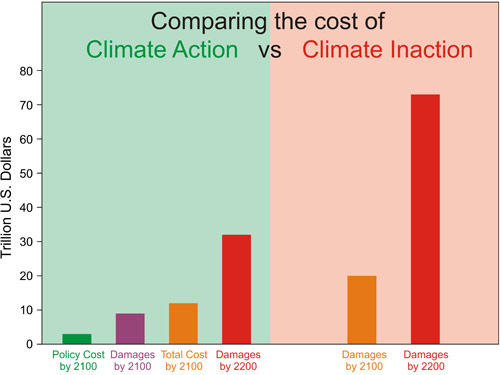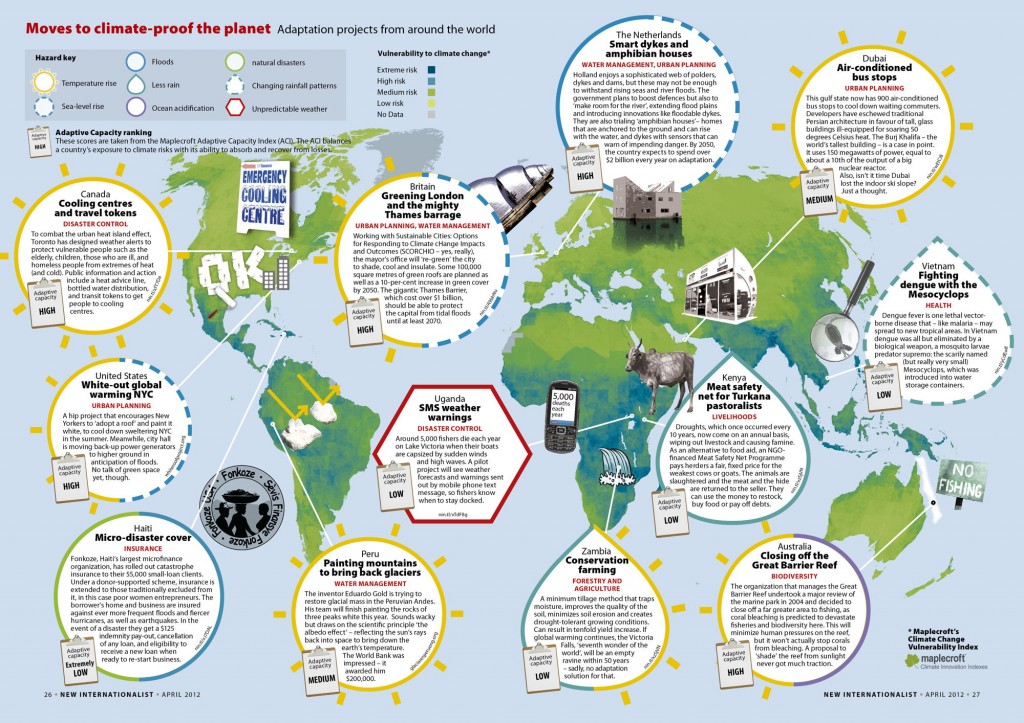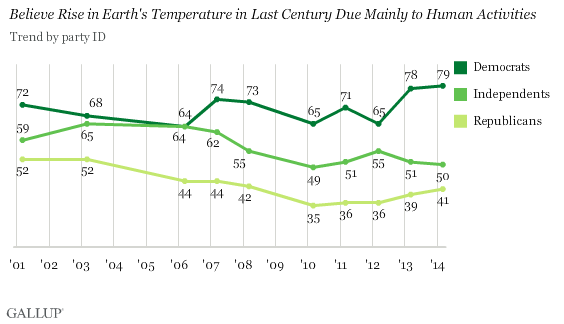May 19, 2014 – Robert Pindyck of the Massachusetts Institute of Technology says we don’t know the real costs of mitigating climate change. “All we can do is speculate.” But in a report released by the International Energy Agency (IEA), produced by its constituent members from 29 countries, it puts a $44 trillion U.S. price on switching to low-carbon energy between the present and 2050. The cost will be offset by the savings from reduced fossil fuel use and may even be better than break even. The caveat, however, is we have to begin now. Just a month ago the Intergovernmental Panel on Climate Change put a $13 trillion U.S. price tag on stabilizing greenhouse gas emissions (GHGs) by the year 2030. And the histogram below provides yet another number.
So who is right? No one can absolutely tell us what action on climate change will cost. That’s why Dr. Pindyck’s comment rings true. All studies are speculating. And one of the reasons for this is the lack of progress by the world community in making the necessary decisions to enforce GHG reductions from current emitters.
Just two years ago the IEA’s previous report estimated that a low-carbon option by 2050 would cost $36 trillion U.S. But world governments did nothing and GHG levels increased. So a lack of decision making is attributed to the additional $8 trillion U.S. that appears in the current report. One can imagine that further indecisiveness will mean increasingly higher costs.
What are some of the factors at work?
- Countries have to develop synchronized policies on GHG reductions. If they don’t then various economies will work at cross purposes and the problem of rising GHGs will remain a problem for all.
- Technologies to mitigate carbon have to work. Energy conservation could prove to be the most effective way to achieve this. But we cannot rule out technology solutions such as carbon sequestration. Today there are a number of projects in pilot phase, most receiving significant government financial involvement. If these work effectively then we have a model for mitigation that can be replicated globally.
- Adaptation projects are needed, like the ones displayed in the infographic below, to assist those nations most vulnerable to the damages current GHG levels are causing and will cause in the near term. This includes protecting low lying coastal areas from rising sea levels and storm surges, developing new freshwater sources using both low and high-technology solutions, introducing crop varieties capable of dealing with extreme climate variability, and medically dealing with the expansion of tropical disease zones as disease carriers move poleward because of global warming.
- Renewable energy technologies to replace those based on burning carbon need to solve intermittency and grid integration issues. Here we are making significant progress with more efficient solar, solar mixed with storage, expanded geothermal, smart wind turbines, smarter grids and microgrids. We may even have next generation nuclear technology that provides zero emission, zero nuclear waste and no potential meltdowns.
The key remains acting sooner than later, something that political leaders seem reluctant to do, particularly in democracies tied to 4 and 5 year election cycles. And it appears based on recent polls in the United States (see below) that the public is ahead of its political leaders on the issue of global warming. In a New York University survey of American economists, not climate scientists, 57% stated that the United States should take unilateral action to reduce GHGs regardless of what other countries do. Many ordinary Americans are even beginning to advocate civil disobedience to get carbon-generating companies and the government to act. The growing domestic opposition to the Keystone XL pipeline is indicative of this growing trend.






















